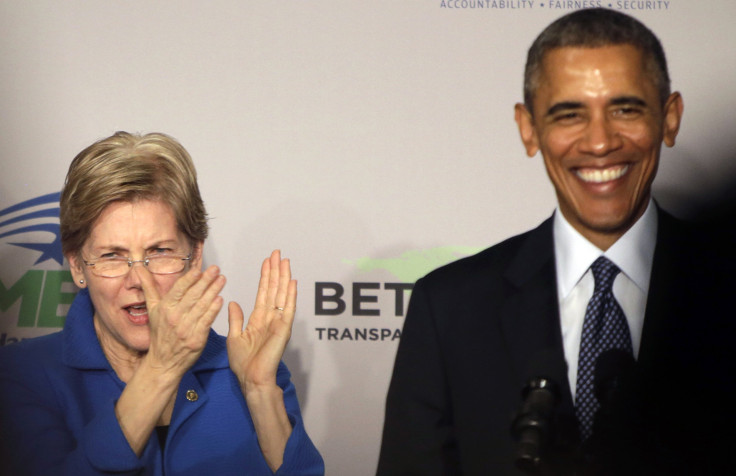Trans Pacific Partnership: Canadian Official's Salvo Against Key Dodd-Frank Provision Muddies Trade Talks

Canada’s top finance official has added fuel to the hot debate over free trade agreements currently roiling Congress. Speaking at a securities conference in New York Wednesday, Canadian Finance Minister Joe Oliver said that the North American Free Trade Agreement conflicted with the Volcker rule, a central provision of the 2010 Dodd-Frank Act.
“I believe, with strong legal basis, that this rule violates the terms of the NAFTA agreement,” Oliver said, according to Reuters. “I hope the United States administration sees that changing the Volcker rule is in its own best interests and that of its biggest trading partner.”
The comments come as American lawmakers scramble to pass legislation that would allow President Obama to enter into the controversial Trans-Pacific Partnership (TPP), a trade agreement covering 11 countries that are home to some 800 million people.
The timing could prove problematic for Obama, says Simon Lester, a trade policy analyst with the Cato Institute’s Stiefel Center for Trade Policy Studies.
"Right in the middle of the whole TPP debate, this could hurt the chances of getting TPA passed," Lester says, referring to the Trade Promotion Authority bill that would provide a fast-track for TPP authorization.
The president’s vigorous support of the legislation has come up against the liberal wing of the Democratic party and its de facto leader, Sen. Elizabeth Warren, D-Mass., who argues that the wide-ranging trade deal could weaken the Dodd-Frank reforms established in the wake of the 2009 financial crisis.
“Anyone who supports Dodd-Frank and who believes we need strong rules to prevent the next financial crisis should be very worried,” Warren said in a recent speech, citing Wall Street’s efforts to maneuver policies into trade deals that could dilute domestic financial reforms.
“This is hardly a hypothetical possibility,” Warren said.
In a Yahoo News interview, Obama scoffed at the notion that he would promote policies that diminish Dodd-Frank, one of his prized legislative achievements. He said Warren was “absolutely wrong,” adding that her concerns were “pure speculation.”
Finance Minister Oliver’s recent comments, however, provide a concrete example of a foreign government floating the use of trade policy as a wedge against U.S. financial regulation.
Oliver’s target, the Volcker rule, was designed to erect a firewall between federally insured bank deposits and the kind of risky proprietary bets banks made in the lead-up to the financial crisis. The architects of Dodd-Frank saw the rule as a central pillar of financial reforms.
The Volcker rule allows banks to trade in U.S. treasuries but bans them from buying up foreign debt -- an exclusion that has ruffled the feathers of trading partners like Japan and Canada. In 2012, the two countries joined several European governments to lodge a complaint over the provision.
Oliver’s comments, however, are the first to link the Volcker rule directly to NAFTA, which covers trade between Canada, Mexico and the U.S. Free trade agreements like NAFTA and the TPP include dispute-settlement provisions that allow partner nations -- and corporations -- to bring challenges to domestic policy.
Though it's unclear whether Canada plans a serious challenge, Lester says NAFTA theoretically provides Canada an opportunity to chip away at Dodd-Frank.
"There’s definitely a basis for a claim there."
But the slim chances of winning a claim against the U.S. suggest that Oliver's provocations might be more political than pragmatic. "The idea that Dodd-Frank’s going to be repealed or even modified because of trade agreements is kind of far-fetched," Lester says. "But even a challenge makes headlines."
Reached for comment, Canada's Department of Finance could not point to a specific provision of NAFTA that the Volcker rule might violate. The agency declined to comment further on Oliver's remarks.
Negotiations over a concurrent trade deal with European partners have foundered over similar concerns, as member countries debate the inclusion of financial services policies. Ironically, it’s the Obama administration that has thrown up roadblocks over that deal, arguing that its banking provisions clash with American financial reforms.
© Copyright IBTimes 2024. All rights reserved.






















